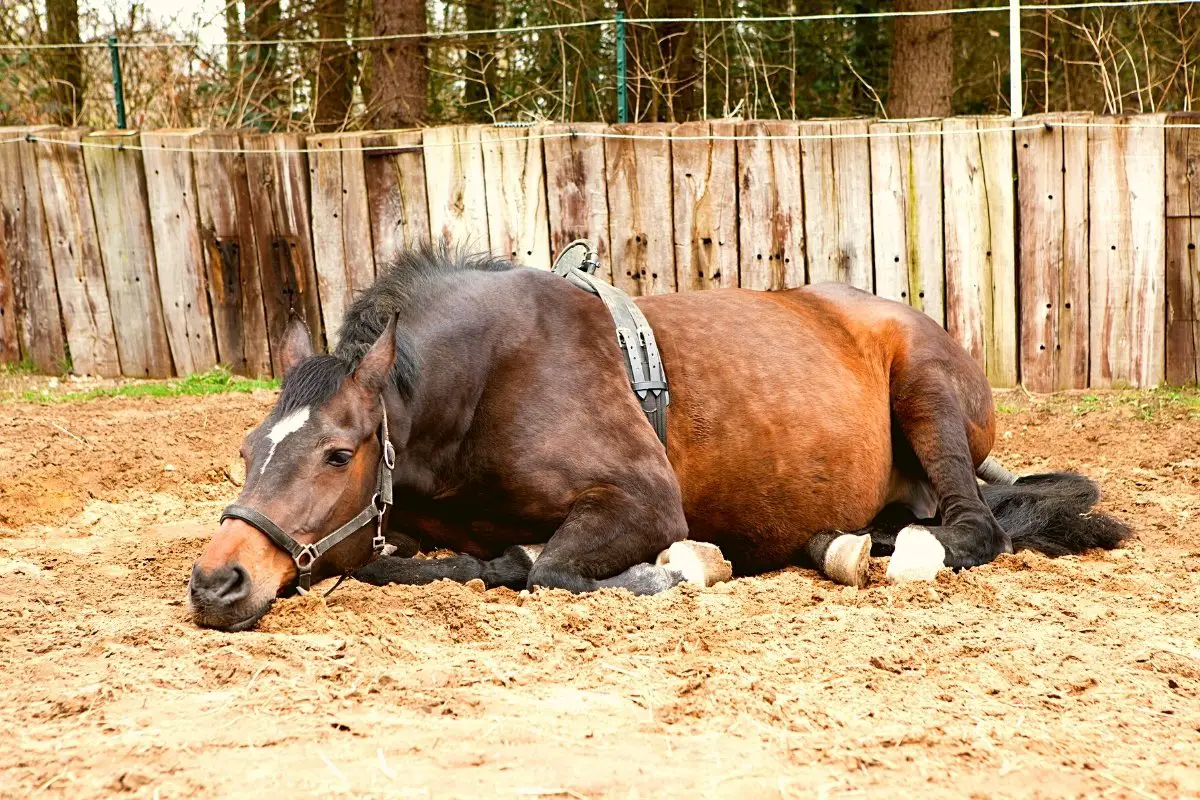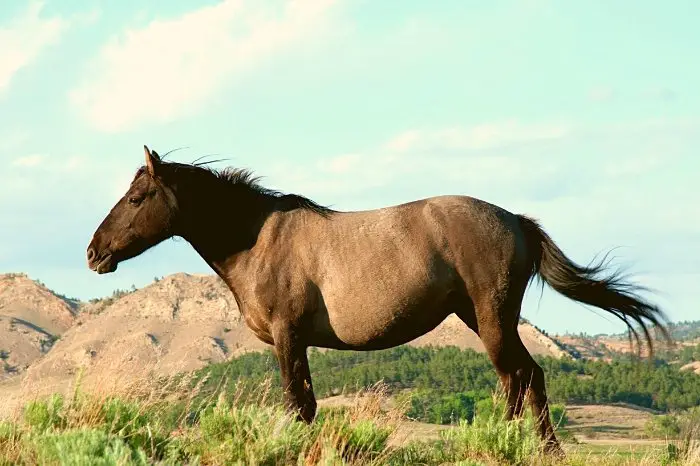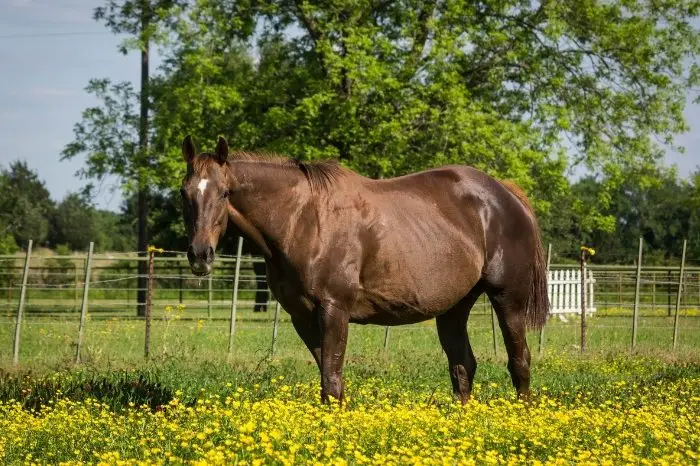

If you are breeding your first foal, the birthing process can be a nerve-wracking time! How do you tell if a horse is having contractions? What are the other signs that a mare is foaling?
Let’s find out everything you need to know about the foaling process in horses!
If your mare is due to foal, it is important to know how to spot the signs that birth could be imminent. Many problems can occur when a mare gives birth, and we need to be able to intervene quickly if anything goes wrong.
If you know the date that your mare was covered or inseminated, you should be able to predict roughly when she will give birth. However, there is a lot of room for error, so you need to be able to identify when the mare is getting ready for foaling. The pregnancy of a mare can last from 315 to 387 days, with the average gestation period lasting 341 days.

This can be even trickier if you have a maiden mare. A maiden mare is one that has never had a foal before. For her first foal, she may have a few ‘false starts’, and the signs of foaling might be more subtle.
Two to six weeks before a mare gives birth, her udders will start to swell. This means that the mammary tissue is preparing to make milk for the Foal. Up to a week before she foals, you might see an occasional drip of milk from the teats.
Another sign that the mare is close to giving birth is swelling of the genitals. Her vulva will appear swollen. You may also notice that the shape of her hindquarters change, as the muscles start to stretch and relax.
The behavioral changes that were seen before a mare gives birth can be very subtle and are easy to miss! If the mare lives with other horses she may separate herself from the herd, in the same way as she would in the wild. She may also be irritable and more restless than normal.
When giving birth, contractions are sporadic and involuntary tightening of the uterine muscles. When horses give birth they do have contractions, as this is what helps to push the foal out through the birth canal.
Contractions are normally quite gentle and subtle to start with and get more intense as the birth gets closer. They will also be closer together.
Contractions can be very uncomfortable for the mare, and it can be easy to tell if a horse is having contractions. The mare will pace restlessly and may repeatedly lie down and stand up. She may also start to sweat, and you might observe her looking at her flanks.
If the contractions are very strong, you might see the sides of the abdomen moving with each muscle spasm. The mare may also breathe heavily and start to grunt with the effort of pushing the foal through the birth canal.
A mare has very mild and subtle contractions for some time during the first stage of labor. These will not be very intense and you may not even notice that they are happening to start with. However, you will notice that the mare is very restless, and the contractions will become stronger as this stage of parturition progresses.
The second stage of labor starts when the mare’s waters have broken. You will see fluid expelled from the vulva, and the contractions will rapidly get stronger.

This stage ends with the birth of the foal and will take from 30 to 60 minutes. Maiden mares will normally take longer than experienced dams.
After the foal has been born, the mare will continue to have contractions for some time. This is necessary to expel the placenta from the uterus.
The first stage of labor can take anything between 30 minutes and 6 hours. If your mare has been having contractions for longer than this, you must seek veterinary advice as soon as possible.
During the first stage of labor, it is essential that the mare is disturbed as little as possible. If she feels nervous or unsafe the whole process will be slowed down or delayed, which may risk the lives of your mare and foal.
This also applies during the second stage, and after the foal is born. The mare must be given time to rest and bond with her foal, without human interference.
However, the birth of a foal is something that most of us would not want to miss! You can watch your mare give birth from a discrete distance, as long as she does not seem upset by your presence. Alternatively, you can install a video camera in her stall so you can witness the birth from elsewhere.

Although it is advisable that your mare should not be disturbed during foaling, she should not be left unattended. You need to be nearby in order to swiftly intervene and get veterinary help if any problems occur.
So, as we have learned, horses do have contractions when they are giving birth. It can be difficult to tell if a horse is having contractions at first, but they will become stronger as the foaling process progresses. It is important to know the signs of foaling in mares, so you understand how to spot problems as soon as they occur.
We’d love to hear your thoughts on mares giving birth! Have you ever been lucky enough to witness a foal being born? Or maybe you’re anxiously waiting for the birth of your first foal? Leave a comment below and we’ll get back to you!

Kate Chalmers is a qualified veterinary nurse who has specialized in horse care for the vast majority of her career. She has been around horses since she was a child, starting out riding ponies and helping out at the local stables before going on to college to study Horse Care & Management. She has backed and trained many horses during her lifetime and competed in various equestrian sports at different levels.
After Kate qualified as a veterinary nurse, she provided nursing care to the patients of a large equine veterinary hospital for many years. She then went on to teach horse care and veterinary nursing at one of the top colleges in the country. This has led to an in-depth knowledge of the care needs of horses and their various medical ailments, as well as a life-long passion for educating horse owners on how to provide the best possible care for their four-legged friends.
Kate Chalmers BSc (Hons) CVN, Dip AVN (Equine) Dip HE CVN EVN VN A1 PGCE